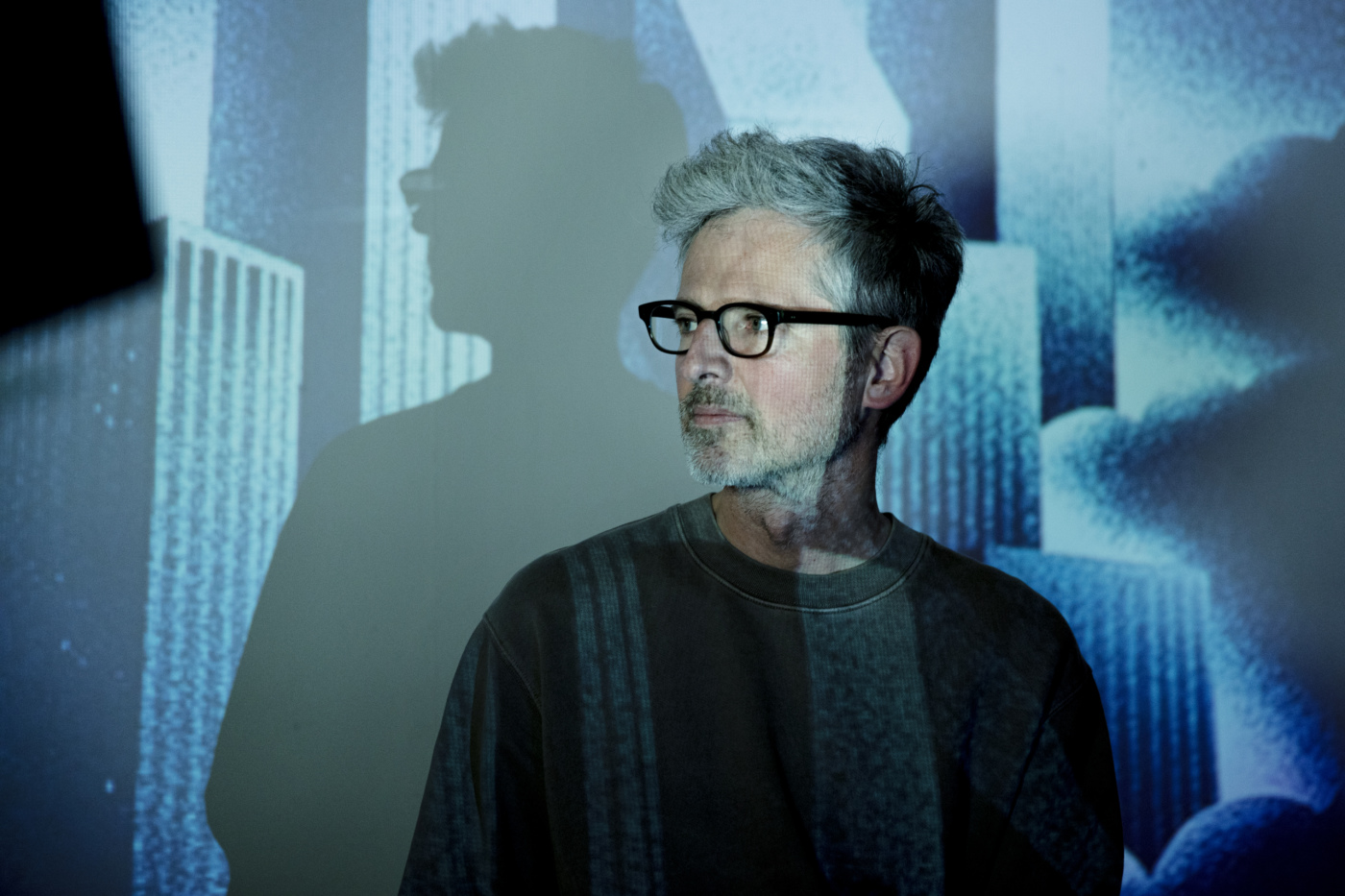Alongside the musician, the eight artists of this European training program discovered how the technology could help creators in terms of inspiration and composition. Under the moniker Skygge, he remains one of the pioneers in this field – so much so that prestigious artists such as Stromae or The Pirouettes are rushing to collaborate with him.
No one ever knows what to expect before meeting Skygge. All they do know is that he’s one of the apostles of “artificial intelligence applied to music”, and that he works with Spotify’s CTRL-labs. When he walked into Trempo’s offices on that frosty January 18th, the man did not fit the stereotype of a mad scientist who escaped from some underground workshop. The 50-year-old, with his salt-and-pepper hair (well, mostly salt), immediately corrected us: no, he is not a researcher, but a musician. He had attained success with his former group Lilicub and their hit Voyage en Italie that anyone over 40 has heard. “I started making music with a relic: the Commodore 64. I also wrote a lot for other people: Françoise Hardy, Imany, Michel Sardou, Johnny Hallyday… Parallel to my career as a songwriter, I started to spend time at the Sony CSL Lab, where eight researchers were designing tools based on AI. They liked the way I was composing and wanted my feedback. I especially like the harmonic surprises.” The Flow-Machines project led by François Pachet and his team of researchers is now hosted by Spotify with the goal of modeling and reproducing musical styles. “For three years, I participated in the development of this tool until I was completely immersed in it.”
“You take your musical fantasies and the machine offers suggestions”
Historically, A.I. was born in the 1950s when mathematician Alan Turing wondered if a machine could “think”. Today, we are still in the early stages of how this technology can be applied to the music. And Benoit Carré is certainly a pioneer, who chose “Skygge” for his stage name (“shadow” in Danish), in reference to a Hans Christian Andersen tale where a scientist’s shadow becomes human when it comes into contact with poetry. In 2018, he opened his Flow-Machines studio to adventurous musicians, including Stromae, The Pirouettes, Laurent Bardainne, Médéric Collignon, and Michael Lovett, the guitarist-keyboardist of Metronomy. With this merry band, Skygge composed the album Hello World in 2018, which uses artificial intelligence. “I wrote for myself, then invited people from very different worlds. I was able to indulge in new experiments and explore a lot of things. For example, you can infuse your music with harmonic arrangements. It’s then analyzed and transformed by the machine: you have the beginning of a song, you add your musical fantasies and the machine offers you different choices.”
“We remain in charge of the process, because we’re the ones providing it with content”
Does this mean that, with these new tools, studio musicians can now go and have a drink at the bar next door while the machine works for them? “No,” retorts Benoit Carré. “It’s an inspiration-accelerator, but it will never write a song for you. It just offers ideas that can be integrated into a musician’s work. It gives you horizons, but it doesn’t take anything away from your work at all. Besides, as things currently stand, the result is zero at 80%. At 18%, it’s interesting. And only the other 2% are really great. I would say that, on the contrary, you have to be much more present. It’s a jungle of sound and harmony. Yes, I’d say I carved my way through a jungle to find my path.” He continued this exploration in 2019 with his EP American Folk Songs. “It’s an interesting example,” explains Skygge. “We were developing a prototype for orchestration that worked with sheet music. I took Pete Seeger’s voice in the track Black Is The Color. I just had a melody, then injected bossa nova harmonies I liked and it created beautiful harmonization. We’re always in control of the process because we’re the ones adding the material. We remain fully involved at all stages. Artificial intelligence is not capable of creating a two-minute song for you in the long run. To get ten seconds of music, it takes three hours of rendering, and very low quality mono sound will be the result.”
“Studying the reactions of other artists”
However, we can’t resist asking him the question: with A.I., won’t mediocre composers just end up designing hours and hours of elevator music? “There will always be the same number of people making crap – that won’t change. It won’t kill creation. But, yes, it will probably take up market share.” For now, this tool isn’t mainstream, and Skygge immediately accepted Trempo’s offer to work with the artists of Slash. “I’m interested in seeing how other artists react, and how they use the technology. After this event, I’ll leave them the access codes to the lab so they can continue. I’ll give them the tools and the deal is to get feedback. Maybe one day they’ll release a track that they partly created with these tools.” Given the enthusiasm generated by Benoit Carré’s event at Trempo mid-January, there’s a good chance he’s right…
Interview : Sylvain Chantal
Photo : Elodie Daguin
